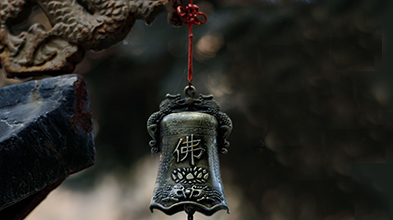How to Manage Ourselves
Fo Guang Shan International Translation Center
©All rights reserved.
Written by Venerable Master Hsing Yun
Recorded by Fabian Yu, Toronto Radiant Subchapter
- How to Manage Ourselves 3:16
How to Manage Ourselves
How to Manage Ourselves
People today emphasize planning, organization, and management in everything they do. For instance, our careers, families, and human relationships all need management. In addition, those who are wise work to enhance social welfare and culture; those who are benevolent work to enhance charity and righteousness; those who are respectful work to enhance finances and friends; and those who are enthusiastic practitioners work to enhance happiness and Dharma joy. However, ultimately, people need to know how to manage themselves as individuals. Here are four keys for self-management:
1. Seek improvement in learning. Life is a path of endless learning. A saying reminds us, "Learning is never complete, for you are never too old to learn." Learning is not temporary; it is a lifelong endeavor, and it is not limited either to what happens at school. There is always something to learn within a household, company, or community. In fact, society in general is like a university providing us with endless opportunities for learning. When learning, it is most important to strive for improvement. We should not be complacent or arrogant, because by always seeking to improve we will be able to raise ourselves to a higher level.
2. Venture wide and deep in the industrial and commercial worlds. These are times of advanced communication and active industrial and commercial development. After graduating from school, we all need to join the workforce. Whether it be in commerce, industry or agriculture, there are various organizations, such as cooperatives, unions and farmers' associations, that exemplify how teamwork and human interactions are emphasized in today's world. So when we participate in a meeting and associate with other people, we need to pay attention to all levels of relationships. Only when we can appreciate and manage human relationships on multiple levels, will we be able to venture wider and deeper in our careers, and succeed more easily in what we do.
3. Be cheerful in managing human relationships. No one can live life shut off from the rest of the world, especially in our modern society where human interaction is dynamic and ubiquitous. People today are closely linked with the societies, the world, the earth and even the universe, in which they live. Thus, we need to know how to manage human relationships well. We should give others joy and benefit. In developing our careers, we must be cheerful and able to share a laugh with others. We need to have a sense of humor and not be stiff or solemn, so as to gain the support of others.
4. Be calm and connect with our spiritual side when we are alone. Keeping busy and being tense is often the portrait of a modern life. When we are alone by ourselves at night after a day of hustle and bustle at the workplace, we should not be thinking about the right and wrong between self and others experienced during the day; and we should not be obsessing about the good or bad nor the loss or gain of our work. Instead, we should calm ourselves to enjoy the peace of our mind and our spiritual world in order to gain strength to start the next day refreshed.
A very successful Japanese entrepreneur, Konosuke Matsushita, was praised as "a god of management." Aside from his outstanding business success and personal wealth, he also gained recognition for his humanistic style of leadership, which was the true basis of his success. Therefore, in life, we not only need to manage our tangible wealth well. More importantly, we must also learn to manage our intangible spiritual world. This is indeed the key to good self-management.
What's New?
NOVEMBER

Humble Table, Wise Fare
INSPIRATION
Recorded by Leann Moore
A moment of loving-kindness:
all things are good;
a moment of anger:
a thousand situations turn evil.

Dharma Instruments
Venerable Master Hsing Yun grants voices to the objects of daily monastic life to tell their stories in this collection of first-person narratives.

Sutras Chanting
The Medicine Buddha SutraMedicine Buddha, the Buddha of healing in Chinese Buddhism, is believed to cure all suffering (both physical and mental) of sentient beings. The Medicine Buddha Sutra is commonly chanted and recited in Buddhist monasteries, and the Medicine Buddha’s twelve great vows are widely praised.

Newsletter
What is happening at Hsingyun.org this month? Send us your email, and we will make sure you never miss a thing!





